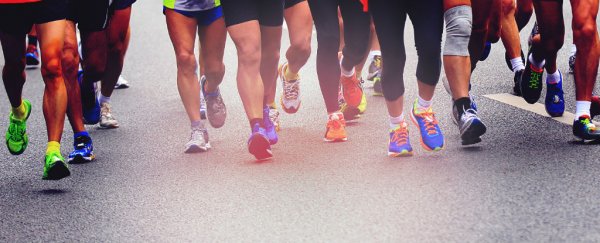Do you grow into a love of an active lifestyle, or are you born with it? New research suggests the latter - quite literally - with scientists finding that groups of mice that exercised while pregnant gave birth to offspring that were more physically active. If this link can be found in humans, new mums could have a hand in establishing exercise habits in their kids.
The team behind the new study says this is a distinct possibility - several human studies have reported results that match the findings of the tests on mice. But it's not clear yet whether active human mothers give birth to kids with an innate love of exercise or whether they're just predisposed to bring them up that way.
To figure this out, researchers from Baylor College of Medicine in Houston, Texas used mice that were genetically identical, reports Nancy Szokan from The Washington Post. Mice were selected that already enjoyed running and then split into two groups during pregnancy - half had access to a running wheel inside their cages and half did not.
Those with running wheels ran an average of 6 miles (9.6 km) a night, reducing to 2 miles (3.2 km) later on in the pregnancy. The offspring of these mice were found to be about 50 percent more physically active than those born to mothers without an exercise wheel - a distinction that continued to be noticeable as the baby mice grew into adulthood.
"Although most people assume that an individual's tendency to be physically active is determined by genetics, our results clearly show that the environment can play an important role during fetal development," said lead researcher, Robert Waterland.
Further studies are required before we can say definitively that mothers who exercise give birth to children more likely to do the same, but it supports the idea that there is a link. And it could give mums-to-be another reason to get up off the couch and keep physically active - something that's already recommended for pregnant women to maintain their own health.
The stakes are high too: the World Health Organisation lists "insufficient physical activity" as one of the top 10 leading risk factors for death worldwide.
"I think our results offer a very positive message," says Waterland. "If expectant mothers know that exercise is not only good for them but also may offer lifelong benefits for their babies, I think they will be more motivated to get moving."
So if you are a sporty, active type of person who loves exercising, you might have your mother to thank for it.
The study has been published in The Federation of American Societies for Experimental Biology Journal.
